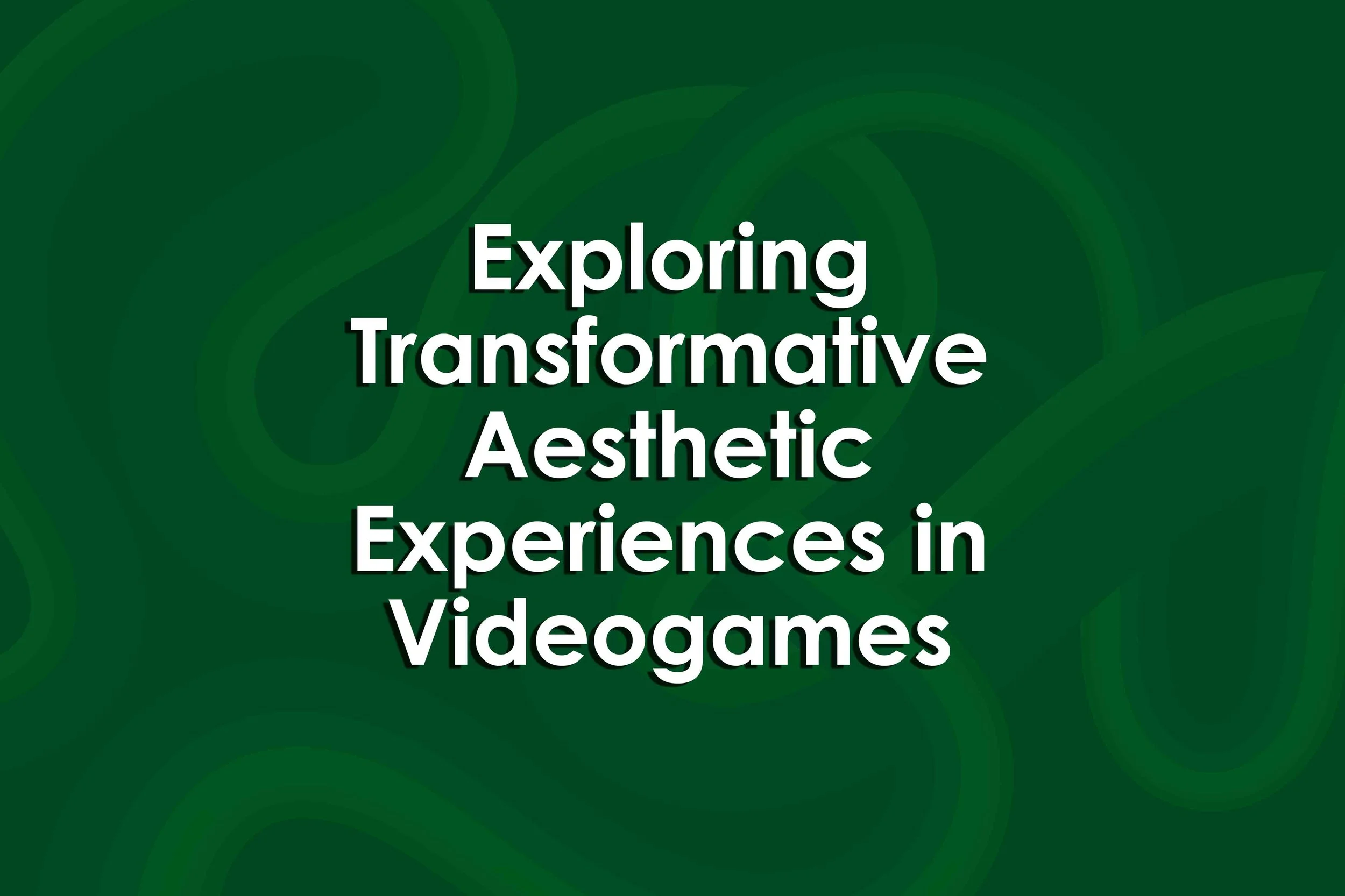Exploring Transformative Aesthetic Experiences in Videogames
Exploring Transformative Aesthetic Experiences in Videogames
Exploring Transformative Aesthetic Experiences in Videogames
Jaakko Väkevä
Abstract
"Playing videogames can change us as persons. This capacity of videogames to transform our perspectives is at the center of many “serious games” that have an explicit purpose outside the scope of entertainment (Ritterfeld et al. 2009), such as producing specific behavioral changes in players for example in the context of education (Braley et al. 2019; Barab et al. 2012) or well-being and healthcare (Pusateri et al. 2020; Burns et al. 2010). However, such transformative responses play an important role within the recreational context of entertainment and art as well, as they appear to relate to a wide range of personally meaningful, “eudaimonic” aesthetic gratifications that do not fit into the traditional scope of what constitutes positive player experience (PX) (Daneels et al. 2021; Whitby et al. 2019; Bopp et al. 2021). This ability for videogames to act as agents of change has been associated with their potential as “reflection machines” (Khaled 2018, 6). However, prior approaches to the study and design of reflective and transformative videogame experiences – e.g., Culyba’s (2018) Transformational framework – have too often focused on explicit and pre-defined transformative outcomes that can be clearly measured while ignoring the more aesthetic and individualistic but oftentimes less clearly measurable and more ineffable transformations – and thus a significant part of the transformative potential of videogames remains unacknowledged (Phelps and Rusch 2020). With my PhD project, I aim to address this gap by investigating the aesthetic aspects of transformative experiences in videogames, delineating how such experiences may evolve throughout and beyond gameplay, and how they can be understood from the experiential perspective of players. The project is situated at the intersection of PX research, game studies, and empirical aesthetics. Videogames are still in the process of maturing as an aesthetic medium capable of conveying a wide spectrum of intricate expressions; currently prevalent PX concepts, such as fun or immersion, uphold a narrow view of positive videogame experiences (Marsh and Costello 2012; Aeschbach et al. 2022; Iacovides and Cox 2015) – and whereas experiences that differ from this conventional, more hedonistic view are being increasingly recognized, they are often clustered under broad and perhaps loaded terms such as “serious experience” (Marsh and Costello 2012; Iacovides and Cox 2015) or “eudaimonic experience” (Daneels et al. 2021; Cole and Gillies 2022). Thus, the field of PX research presently lacks empirical and conceptual tools through which videogames could be understood more comprehensively as complex and nuanced, emotionally diverse aesthetic experiences."
Reference
Väkevä, J. (2023). Exploring transformative aesthetic experiences in videogames. Proceedings of DiGRA 2023 Conference: Limits and Margins of Games. Digital Games Research Association. https://dl.digra.org/index.php/dl/article/view/2026
Keywords
Player Experience, Aesthetics, Transformative Experience

